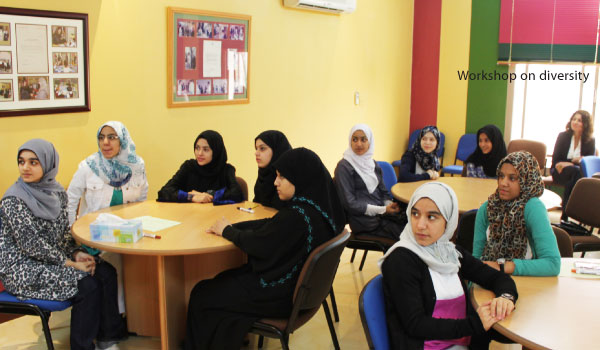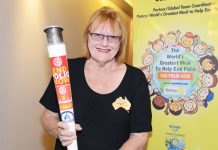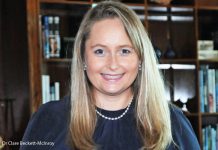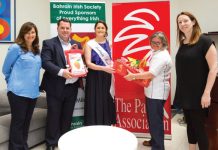Ever thought about how dull life would be if everyone looked alike, thought alike, and acted alike? By teaching our children to appreciate our differences, we can overcome prejudice and intolerance and work towards a more peaceful world.
Our universe is built on diversity. Yet, there’s a growing polarisation between people around the world, with lessening tolerance and respect for others who are different. This disturbing trend can have a negative and longstanding impact on people and communities worldwide.
Helping our children perceive and applaud diversity in everything around them, including people, will have a significantly beneficial effect on future communities worldwide.
“Me and the Other” — a pilot training programme for children and teens in Bahrain — aims to accomplish just that. Launched by the Be Free Programe, in partnership with the British Embassy, the project aims to promote the values of tolerance, forgiveness and reconciliation among school children in Bahrain.
“People are different in colour, shape, belief, religion and many other ways. We hope that this project helps create a culture of respecting these differences, learning from them, and growing with them,” observes Dr Rana Al Sairafi, manager of the Be Free Program.
The organisers decided to start with children and teens as change comes easier for this younger age group and they find it easier to accept the concept.
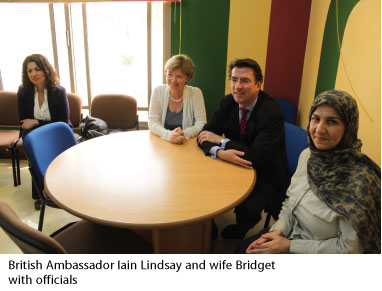 The programme encourages every child to start with himself or herself and build a bridge towards a different other. “Only by having genuine and strong ties within communities, and between them, we can achieve peace, and grow,” Dr Rana notes.
The programme encourages every child to start with himself or herself and build a bridge towards a different other. “Only by having genuine and strong ties within communities, and between them, we can achieve peace, and grow,” Dr Rana notes.
The inaugural workshop was launched by British Ambassador Iain Lindsay and his wife Bridget in February. Ambassador Lindsay, who is a Scottish Protestant and his wife, an Irish Catholic, are themselves proof of how different cultures can work together. Their presence at the workshop underscored the message of respecting differences and promoting social reconciliation.
The Ambassador addressed the first batch of children and teens at the workshop and talked about his experiences with different cultures, including with his wife at home. Citing an example of a popular candy, M&Ms, Ambassador Lindsay told the children that the candy seems attractive because of the sheer diversity of its colours.
Basic principles
Respect for each others’ cultural values and belief systems is an intrinsic part of cultural diversity. Lack of respect is often based on ignorance or misinformation. When one does not understand another’s values, lifestyle, or beliefs, it is much easier to belittle them. It is then that the seeds of prejudice and intolerance are sewn.
“This culture of embracing differences and diversity will add beauty to life, make it more fun, and give people a higher chance of learning from each other. Moreover, the course also discusses emotional poverty in the family, extended family, or even school, and its effects on the personality and character of children and the way they build relationships with others,” says Dr Rana.
On a different note, the programme addresses social relationships, especially relationships with others who are different, over the internet and how the new technology has influenced these relations.
The series of interactive workshops under the project cater to two groups; the first includes children in grades ranging from four to six, while the second is for teens in secondary schools. At a later stage, the scope of workshops will be widened to include parents, adults, and caregivers as well.
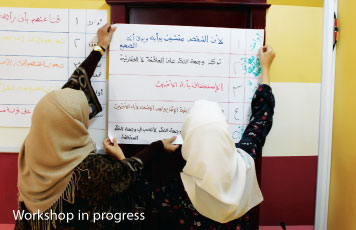 The project has been designed to encourage a culture that views differences as a source of growth rather than threat. Besides workshops, a host of interactive educational material such as animation films, stories, flyers, booklets and manuals are being produced to address children, teens as well as parents and care givers.
The project has been designed to encourage a culture that views differences as a source of growth rather than threat. Besides workshops, a host of interactive educational material such as animation films, stories, flyers, booklets and manuals are being produced to address children, teens as well as parents and care givers.
The programme will run for a year, wherein organisers will further develop training manuals to train other teachers, parents and care givers so that they can, in turn, conduct these workshops for their students or children.
“Be-Free is working on passing its knowledgebase, concepts, and training materials to others so more children and teens can benefit from it,” says Dr Rana.
Moreover, training material is being designed in such a way as to make it easier to implement training workshops by teachers, or trainers not only in the Gulf, but also for those from other countries.
“Children are taught the basics of respecting themselves and, by extension, respecting others as well. They are told that opinions of each person count and hence they should hear out others and respect their opinions. Learning from differences and identifying common grounds and building on them is also stressed,” she says.
The nine workshops are built around nine principles. Children are encouraged to start conversations which focus on the best in others, empathise with their peers and respect their feelings. They are told to wish for others what they would wish for themselves. They are taught that tolerance is the main value they should adopt when growing up.
Training workshops are available for all schools, clubs, universities and cultural centres in Bahrain. According to the organisers, the response so far has been very encouraging.
“More than 150 children and teens have been trained since the launch in February, and the workshops are available throughout the year to anyone who is interested. We have received many requests from schools. There is also a request from a university to give a brief about the project to the students,” says Dr Rana.
Participating children and teens also get an opportunity to share their experiences and the challenges they face with the programme trainers. Be-Free is developing stories for children and a guide for teens which include animation characters that deliver the message simply and effectively to the target group.
The British Embassy and the Be Free Program will review this year’s experience before they decide on expanding the project for the coming year.
To enquire about the workshops call 17 242-415 or email [email protected]

























